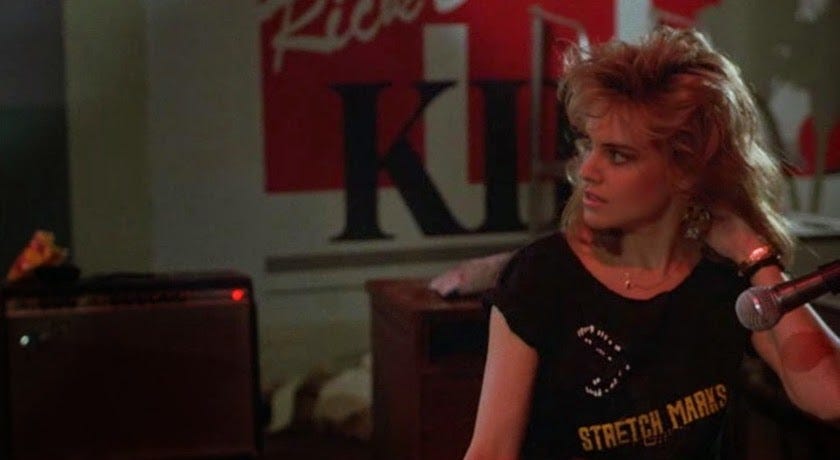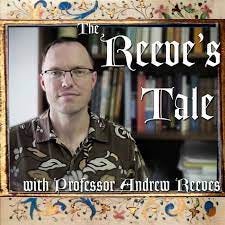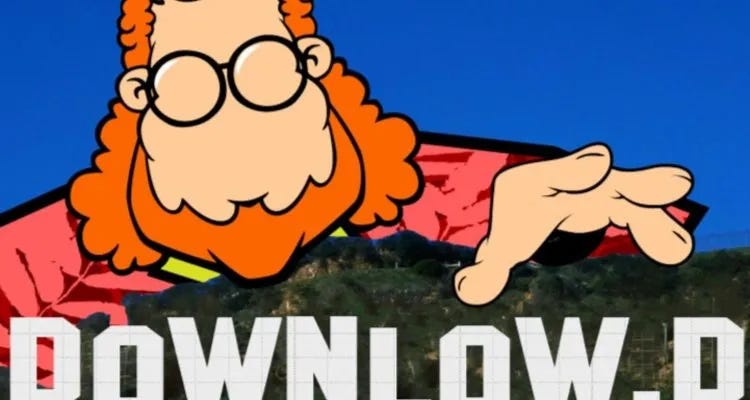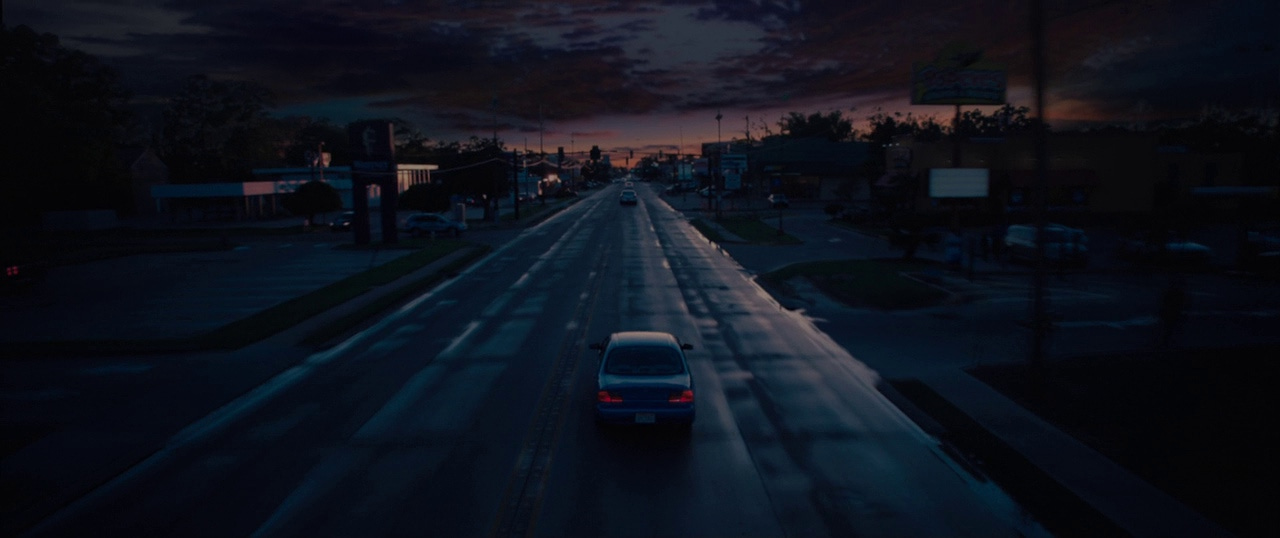"The Middle Ages are rad as hell."
A sedate conversation with Professor of Medieval History Andrew Reeves, creator of "The Reeve's Tale"
A professor of medieval history, part time metalhead, and former Marine, Andrew Reeves is the creator and host of The Reeve’s Tale, a podcast all about the many ways “Middle Ages are awesome.”
Topics include: getting into Medieval Studies through D&D, through Tolkien, through fantasy and video games; Humanities academics being dopamine addicts, professors debasing themselves on social media for clout and engagement, Jordan Peterson as a worst case scenario, LiveJournal drama, flame wars, the rush of validation that comes from being published in academic journals vs. the narcissistic impulse to whip out the phone and post, the golden age of Extremely Online scholars, Andrew listening to podcasts when he’s painting his Warhammer 40,000 minis, becoming a Twitter personality as the gateway to brain worms, and how to deal with the day-by-day after you spend all of your life looking over to the next thing.
Let’s roll.
The first episode of your show I tuned in - “Books that Didn’t Quite Make it into the Bible”- starts with old-timey music, then there's your nice, sedated voice, very professorial, and then you're saying “God vs the Devil battles sound metal”. WALK ME THROUGH THIS. HOW DID WE GET HERE?
That's a great question! And an answer actually starts with the music of the intro and outro. You see, that music is from the Dies Irae, the thirteenth-century Latin hymn that was played in the Mass for the Dead. Those first two stanzas, translated into English, read something like,
Day of wrath and doom impending!
Heaven and earth in ashes ending!
David's doom with sybil's blending!
Oh what fear man's bosom rendeth
When from heaven the Judge descendeth,
On whose sentence all dependeth.
So you've already got something that's pretty metal, and honestly, it comes off as super-intense in the version you get in Mozart's requiem. But you ask how one goes from the calm, professional voice to talking about war of angels and demons and how metal it is? Well, inside many medievalists, you have two voices. You have the sedate, serious scholar. The person who will answer a question about the Middle Ages by starting with an explanation of how the handwriting in medieval manuscripts starts in the chanceries of late Roman Gaul. But then... In nearly every medievalist under fifty, there's also the sort of person who got into this sort of thing through D&D, through Tolkien, through various fantasy and video games.
But of course, part of grad school involves the training to say that whatever you think of Ren Faires, video games, etc., as an actual scholar, you need to have a background in the serious and sober side of these things. You learn the Latin, you learn the modern languages, you learn about how to work with texts that may exist only in manuscript form, and the like. But at the background, there's still a lot of the "fantastical Middle Ages."
This is actually a bit of a generational divide. Back when I started grad school in 2003 -- That was just a couple of years ago, right? Right...? -- the young medieval studies grad students who were also into things like D&D, power metal, and the like sort of kept quiet about it. By the time I'd been in grad school for about three years, though, the lower cohorts coming in were people who were happy to openly share their interests in, e.g., Harry Potter slash. Huh. Not sure how I ended up here in the space of four paragraphs.
I guess that I'll circle back and say that we medievalists tend to be serious and sober in our approach to the sources, but also to think that the Middle Ages are rad as hell.
For the better part of a decade now, we've been living in a swampy time of professors and academics debasing themselves on social media for what I can only assume is clout and getting strangers to agree with them, yell at them or both. Are there bigger incentives at play I can't fully grasp because I'm not a Dr. Prof. ? The last thing I would want is to become Jordan Peterson.
One of them is that humanities academics in particular are dopamine addicts. There are a few different ways that as an academic you get a rush of validation. One of them is in publication. When you open the PDF and see your own words all formatted and laid out in the format of a scholarly journal, when you finally get a copy of your book from your publisher with your own name on it, that sort of thing is a very, very powerful rush. There's a problem there, though. The turnaround time on humanities scholarly publication is... lengthy. Between the research, the writing, submitting to a journal, revising your article based on the referees suggestions, etc., you're talking about a year and a half, best case scenario. And... that's a long time to wait. What's another way we get a rush of validation? Well, it's teaching! But the thing is, even course prep is a fairly lengthy process. Especially if you're working a little bit outside of your field, you're plowing through the relevant scholarship to make sure you're spun up on it, making sure your lectures, tests, etc., are prepped, then you're with the students for fourteen to sixteen weeks. It's a faster pace than publishing, but still relatively slow.
You see where I'm going with this, right? Social media gives you the same sort of dopamine hit that publishing and teaching does. You're recognized as an expert by large numbers of people and you're out there getting *seen.* And suddenly, you don't have to have the discipline to sit down and take months at a time to carefully research an article or prepare a set of course lectures. No, you just pull out your phone or fire up a browser and bang! Instant validation! And then, this often ends up playing to our worst element as academics -- namely the narcissism -- while also wearing away at our best shield against narcissism, to wit, a slow, disciplined approach to the material.
Remember when Peterson debated Žižek? And remember how he'd just googled Marx before he went in? That's because he'd gotten so used to being an Online Celebrity that he'd just quit doing anything like scholarship even though he had the resources of the best research university in Canada at his disposal.
The other thing that I think has happened to... too many academics is that we were vulnerable to the same Virgin Field problem that normies were. Take the normie who never used the internet for anything other than shopping, then got on Facebook in 2011 and got completely radicalized. Now imagine that you're doing this with someone who’s actually pretty good at writing and likes having a platform. Moreover, if you're the sort of person who grew up on LJ drama, forum wars, and the like, if you finally made it to adulthood, you picked up some high-ish level of metacognitive skills (or just became a seething mass of brainworms). But those academics who never built up those metacognitive skills, well, they just went all-in.
At least, that's my take on it from the inside.
Are there real incentives for an academic to develop their own projects – their writing, a popular-information podcast like yours - or is it somewhat frowned upon? Erik Hoel said him writing books and essays was a non-issue, as far as his University's rules went, but it wasn't taking him anywhere in terms of academic career prospects. Grabbing you a direct quote:
I'm curious to know if this is a thing in Humanities circles as well.
So professors are usually evaluated on a three-part set of obligations: teaching, research, and service. Teaching is what you'd expect. Research is of course doing peer-reviewed scholarship (or conference presentations). And then there's Service, which is essentially the Everything Else bucket. Now, when it comes to faculty evaluations, some schools will weight research more heavily, particularly if it's what we call a State Flagship school or even the schools that are one rank below state flagship. Other schools that are more teaching heavy (and this includes both lower-ranked state schools and also prestigious Liberal Arts Colleges) will weight teaching more heavily in one's evaluations.
Do you know what gets very, very little weight in one's evaluations or in hiring? That's right, service. Service is the Everything Else bucket. That could be sitting on or chairing committees (what we call "service to the university"), but it would also include public outreach projects like, say, podcasts, public lectures, etc. That's "service to the community."
So there's a minor incentive to do public-facing work, as it would beef up the Service section of your evaluation. But service is usually something that comes last.It's still important in your evaluations, but it's a distant third behind teaching and research.
Let me get back to a precious thing you said earlier. You've been around long enough to witness a shift in the level and depth of nerdery Academia folks were allowed to share in a public fashion: I remember a moment in the past where just "being active online" was considered unbecoming. If a professor wanted validation (which, by the way, is FINE!) the way to go about it was to publish a lot of papers, get a book going, get invited to this or that symposium as a speaker. Being online was still deconstructed as a sign an academic wasn't to be taken seriously. Are you able to pinpoint a moment where the tide turned?
So it's very much "finger to the wind," but it feels like the tipping point was somewhere around the late 2000s and early 2010s. And it started with junior scholars: these were the people who'd had an intellectual formation in the Age of Discussion Boards, who had been on LiveJournal from the beginning, and who had leapt onto Facebook when it had been cool young people and not Racist Uncles. And they took to social media because that's what was in their blood.
So here's the thing about junior scholars. They're at the bottom of the totem pole in terms of status, pay, what have you. But... when there are enough junior scholars doing a Thing, suddenly, the Thing that junior scholars are doing starts to look fresh and new, like the Future of the Profession. And suddenly, Online was where the Future of the Profession was happening.
And what brought you to be more active online now, in the Year of the Lord 2023, with such a cool podcast project?
Well, a few years ago I was talking with a friend who's a former student and he was talking about YouTubers and he suggested I start a YouTube channel. And I'd kicked the idea around because I like sharing medieval (and ancient, and early modern) history with the general public because, well, it's fascinating. But for the most part it was always a "thing I'll get around to." Now then, I listen to podcasts a lot when I'm painting my Warhammer 40,000 minis, and in the process, I kept hearing ads for Acast. And as I kept hearing ads for this service to "launch, grow, and monetize your podcast" I thought, you know, I've been wanting to do *something* like this for a while, so why not now? And there's so *much* that I'd like to be able to share in twenty-odd minute chunks, which seems just right for not wearing out people's attention span.
Andrew, I don't think you fully get the impact of the sentence "I listen to podcasts a lot when I'm painting my Warhammer 40,000 minis" coming from a medievalist and a professor, but I'm HERE FOR THIS.
That said, the more I talk with other human beings, with the benefit of engaging in good faith, the more I realize platforms such as LiveJournal and the first blogging tools played a far larger role than we understood at the time; if you wanted to make a name for yourself, you could, but nobody was demanding participation from you, and it was harder to judge yourself on metrics alone (number of followers, engagement per posts and so on). Right now it feels like people without *a lot* to offer are desperate to gain traction for their statements. Is it something you're mindful of when it comes to the entire online presence you're cultivated, the podcast being your latest endeavour?
Oh absolutely. It's weird. Back when I first stumbled onto Twitter -- I'd heard that Facebook had become Granny-land and all The Cool Kids were on Twitter -- I was fascinated by the way that peole could become Twitter Personalities. And, to be honest, I envied it a quite a bit, but it took a while for my Twitter persona to find its voice. But I'm sort of glad that I never really became a Twitter Personality, because I noticed very quickly that, and I need to put this as non-judgmentally as possible, becoming a Twitter Personality tends to give you brainworms because all your behavior is focused on what gets engagement. And for academics, there's a strong tendency to lose site of their scholarship and end up with the social media tail wagging the dog.
This is more or less why I decided to go in for podcasting that's me just sharing stuff I think is cool about the Middle Ages and try to avoid any commentary about Issues of the Day. As a voter who's conscious of the public sphere, I think it's still (sort of?) good that lots of that sort of conversation happens online, but I figure that I should stick to what I can offer as a medievalist, if that makes sense.
I started this project once I fully appreciated my overall frame was (still is) "expectations, reality and the inevitable crash". Looking at your career, is there one moment that stands out to you as a case of "expectations crashing into reality" ? And is there any lesson you learnt in the aftermath ?
Oh, gosh, you ended on a tough one. And I think I'm going to approach this from a slightly different angle. For most of my adult life through my late thirties, there was always something that was Next, something that was Coming Up. So when I was in the Marine Corps, I was looking forward to getting out and going to undergrad. In undergrad, I was looking forward to grad school. In my MA year, there was getting into the PhD program. In the PhD program, there was finishing the dissertation. Then, there was getting an academic job. Once I got my lectureship (i.e., a year-to-year, but full-time teaching gig), I was looking forward to getting on the tenure track. Then, when I got a tenure-track job, there was tenure.
But once I got tenure... What then? There's a profound sense of, okay, you caught the car and... then what? Just sort of keep up at this for the next couple of decades that TIAA-CREF says I need to wait until I retire? Part of the reason I've been doing things like jumping into a hobby like Warhammer 40k or then starting my podcast is that I've been trying to deal with the weird sense of, "So that's... it?" that hits after you spend all of your life looking over to the next thing and the next thing and the next thing that's just over the horizon. So finally Being A Tenured Professor is in many ways great, but since it marked the end of going from one signpost to another, it sort of leaves you with a weird feeling of ennui that I'm still sort of working on.
If you want to learn more abut Andrew Reeves (you should), here’s your way to get in on the action:
You can listen to The Reeve’s Tale
You can support The Reeve’s Tale on Patreon
If you liked this conversation, try these:
"We were pretty normal guys who ended up in an information war": Jay McKenzie and "Did Nothing Wrong"
Jay McKenzie and Griff Sombke are the creators of Did Nothing Wrong, a podcast and a newsletter all about “politics at the intersection of extremists, propaganda and Cold War 2.0”; their goal, “cutting through the noise to help you make sense of a chaotic information space”.
"The early Internet was shaped by the attitudes and mindsets of straight white men": Joe Scott and the un-making of Ain't It Cool News
Some time ago I went to a tropical island for a film festival . In a landscape dominated by American film journalists clamouring for more swag bags, more guided tours, more drinks on the house, Harry Knowles managed to stand out. He held court in the lobby with a gaggle of foreign correspondents, all of them men, on the young side, eager to manoeuvre th…
"We didn’t survive cults so that Netflix vultures could monetize our shame"
These days Matthew Remski is best known as the co-host of Conspirituality, the podcast about “dismantling New Age cults, wellness grifters, and conspiracy-mad yogis” he created with fellow researchers Derek Beres and Julian Walker, so of course I found his work sometime in 2021 by searching “








